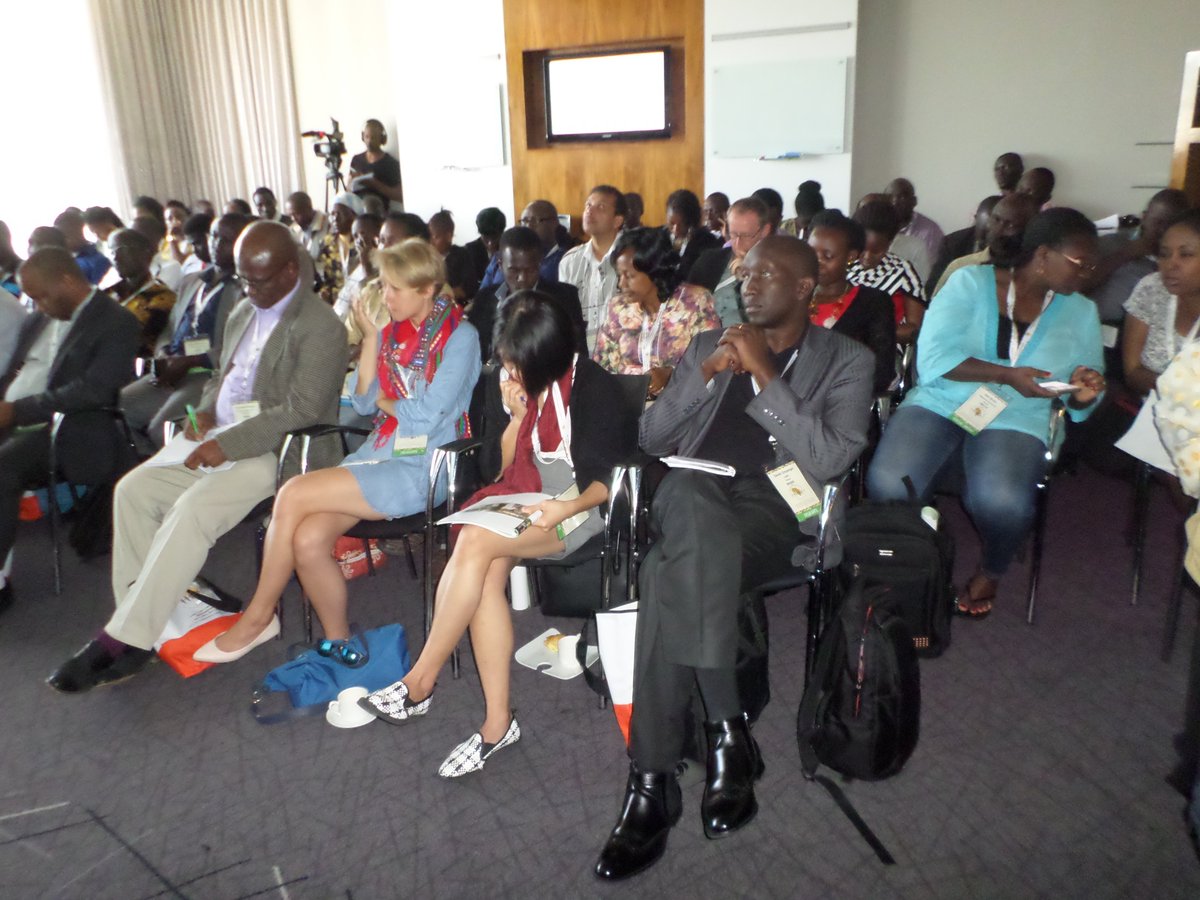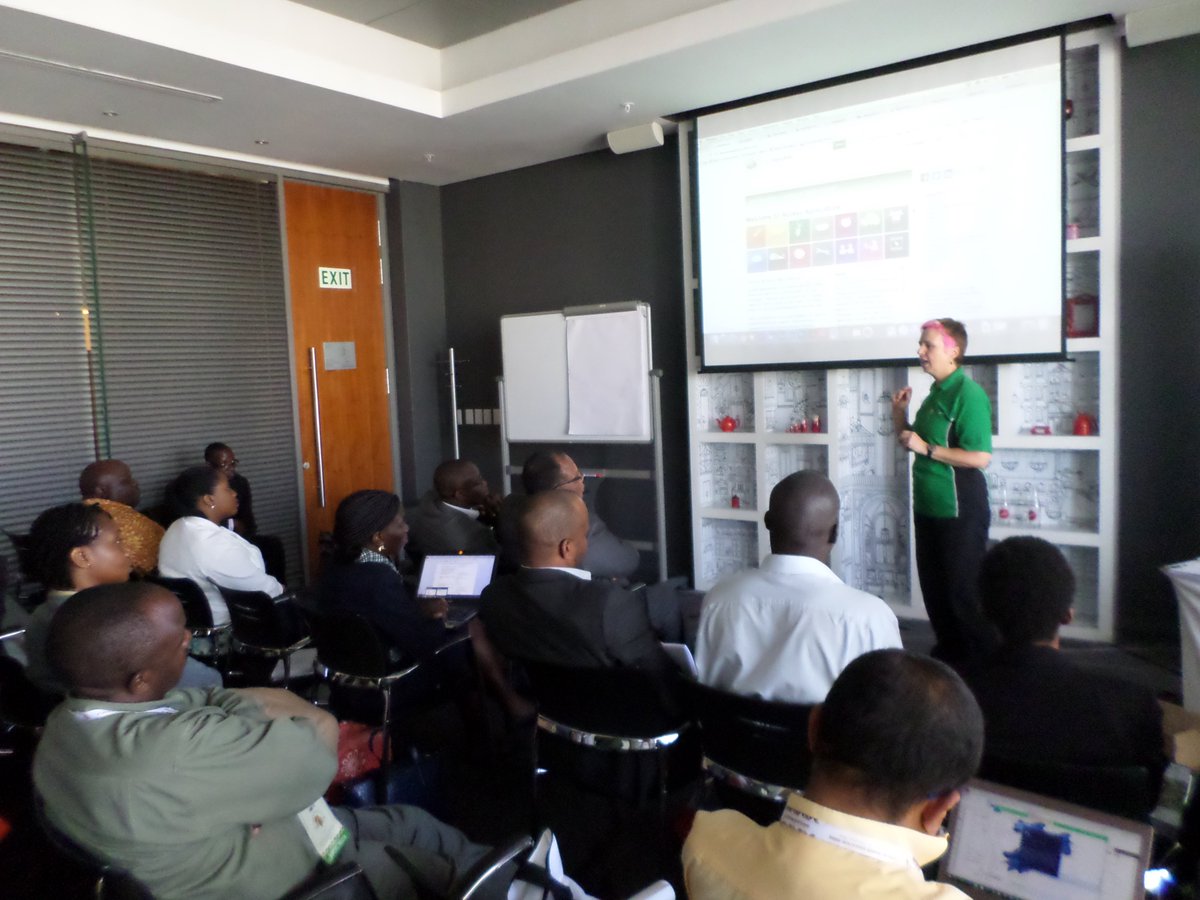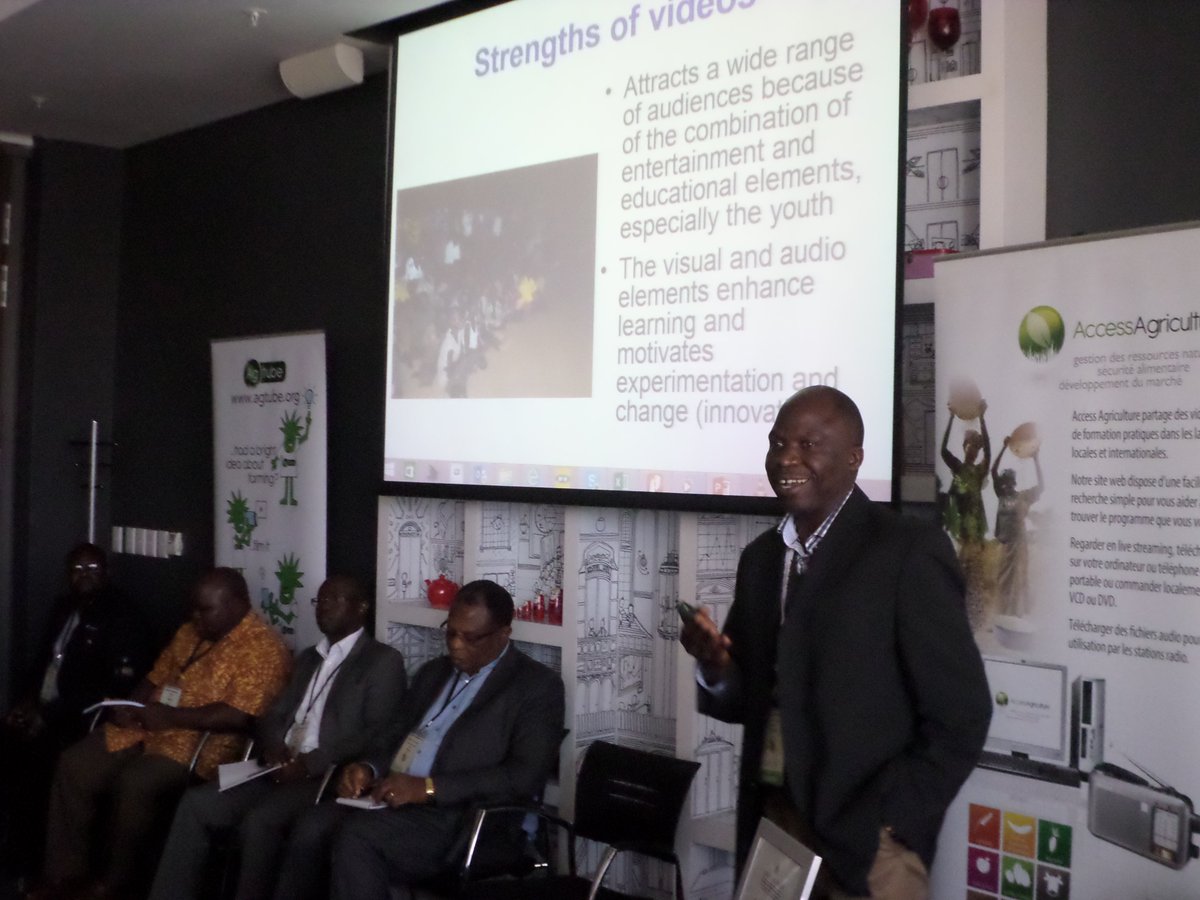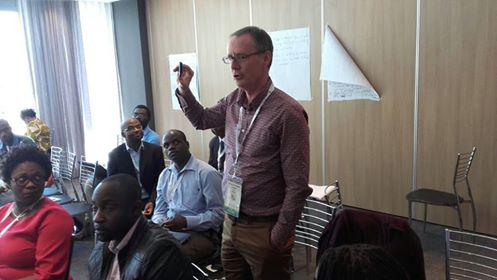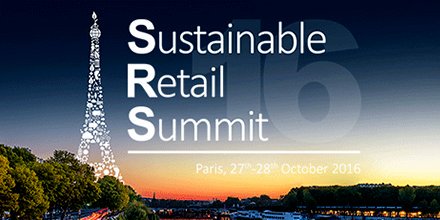 27-28 October 2016
27-28 October 2016. Paris, France. The Consumer Goods Forum.
THE SUSTAINABLE RETAIL SUMMIT. The topics addressed included Food Waste, Forced Labour and Health and Wellness.
Internationally renowned speakers, round table discussions, workshops and networking opportunities provided applicable learnings from FMCG experts (company CEOs), high level government representatives, international organisations, inspirational health & sustainability leaders and other stakeholders.
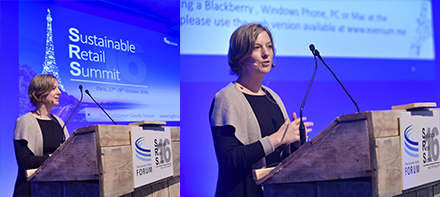 |
Sharla Halvorson
Nestle Manager R and D
|
Extract of the programme:
USSEC: the critical issues behind soy sourcing and sustainable production.
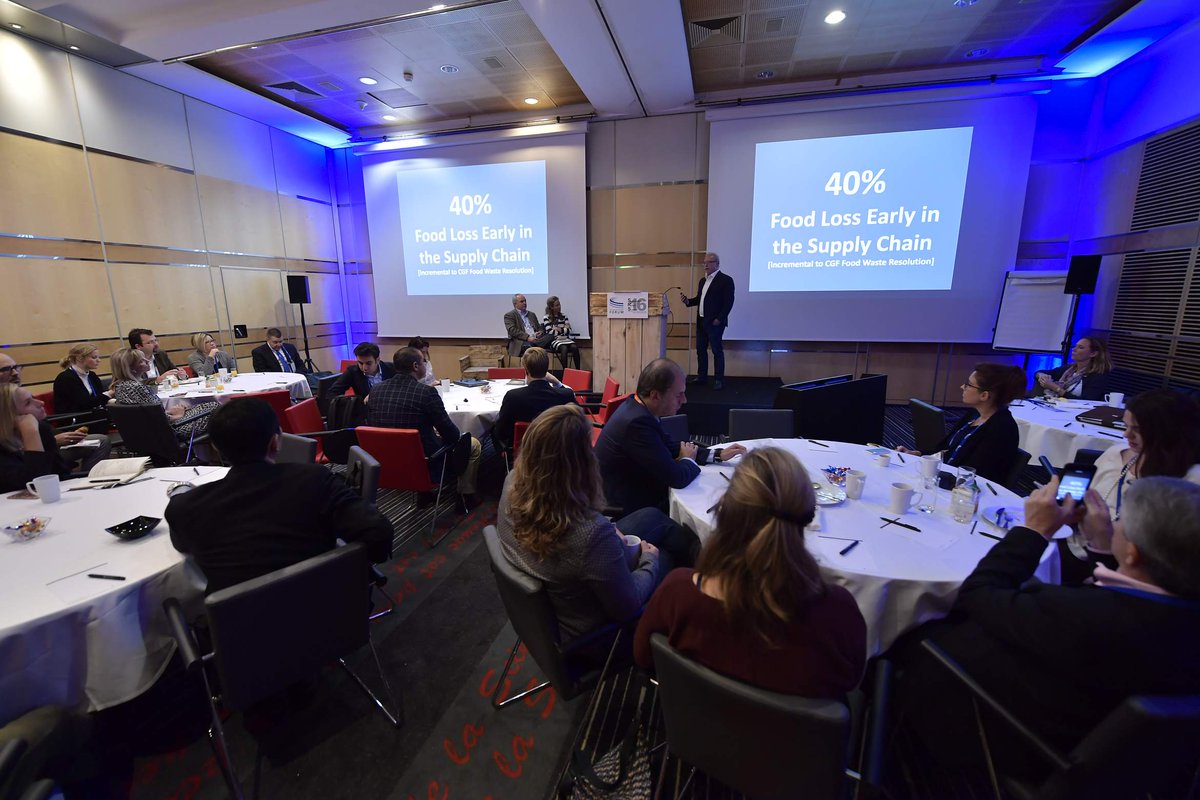
- This session offered a unique opportunity for The Consumer Goods Forum and the U.S. Soybean Export Council to educate and inform a broader audience of CGF members on the critical issues around soy sourcing and sustainable production.
- Within the context of the work done by the CGF on deforestation, this session highlighted the update of the soy sourcing guidelines. USSEC presented the US Sustainable Soy Assurance Protocol (SSAP) and their efforts to gain greater recognition and acceptance by European traders, feed companies, livestock producers and retailers and consumers.
- Finally, US soy producers provided their first-hand experience on what sustainability means to them, the soy value chain and American consumers.
MEGATRENDS 1 - FOOD WASTE
Food waste is an enormous environmental, social and economic challenge. A third of food calories produced are never eaten. It represents an economic cost to the global economy of $940 billion per year and, if food waste were a country, its carbon footprint would be third only to China and the US. Given the magnitude of this challenge, the consumer goods industry is publicly committed to food waste reduction.
- CEO Chimney Talk
- Thierry Cotillard, CEO, Intermarché Alimentaire Internationale
- Mike Coupe, CEO, Sainsbury’s
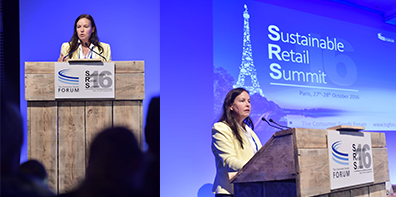 |
| Sabine Juelicher |
- Dave Lewis, Group CEO, Tesco StoresExpert Panel
- Craig Hanson, Global Director (Food, Forests and Water) World Resources Institute
- Sabine Juelicher, Director, DG Health and Food Safety, Directorate E - Food and feed safety Innovation, European Commission
- Pierre Galio, Head of the Consumer and Prevention Department, The French Environment and Energy Management Agency, ADEME
- Jérôme Bédier, Deputy Chief Executive Officer and General Secretary, Carrefour Group
The 2017
Global Food Safety Conference that will be held
February 28 through March 2, 2017 in Houston, Texas.
Related:
Members of the Consumer Goods Forum (CGF) have contributed to
a new Food Waste booklet, which incorporates real-life examples on how said companies are measuring and reducing food loss and waste.
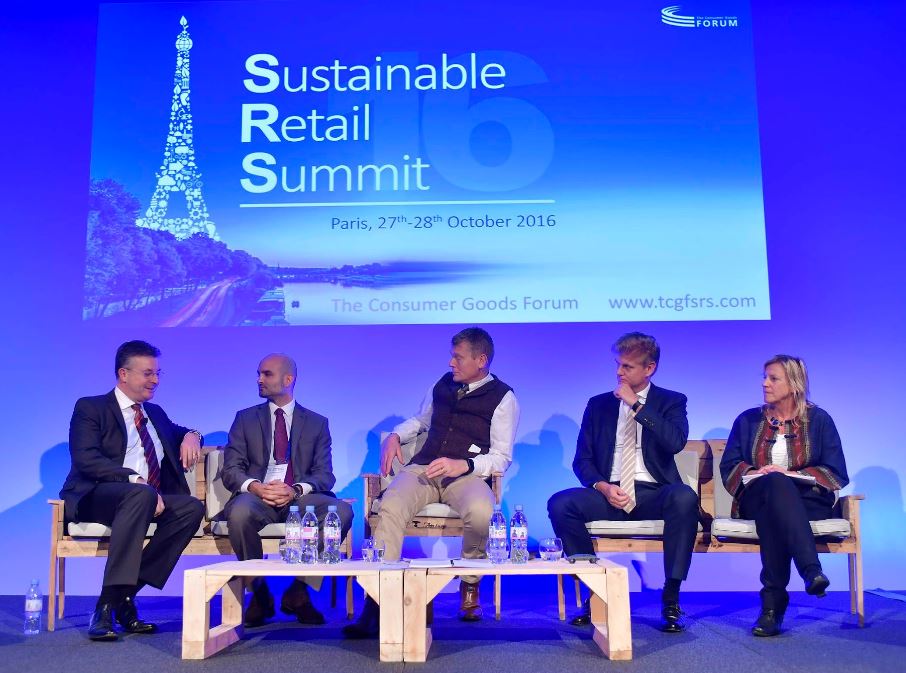 The booklet
The booklet (
37 pages), which was launched at the Sustainable Retail Summit in Paris, follows on from other
recent successful food waste initiatives involving the CGF and its members, such as the 2015 CGF resolution to halve food waste within the individual operations of its members by 2025, the launch of the Food Loss and Waste (FLW) Standard and participation in Champions 12.3.
According to the Forum, the booklet ‘serves as inspiration and guidance to others wishing to accelerate their food loss and waste measurement and reduction by showcasing an array of successful approaches to food waste from consumer goods companies.’
Related:
A new report (
September 2016, 18 pages) on behalf of
Champions 12.3 assesses global progress toward Target 12.3 of the Sustainable Development Goals (SDGs), which calls for halving food waste and reducing food loss by 2030. Champions 12.3 is a unique coalition of leaders across government, business and civil society dedicated to achieving Target 12.3.
Actions include:
- The introduction of our Food Waste Resolution, which asks members to halve food waste within their individual operations by 2025
- Co-developing the Food Loss & Waste Reporting Standard (FLW), which is the first-ever set of global definitions and reporting requirements for companies, countries and others to consistently and credibly measure, report on and manage food loss and waste
- Leadership from companies like Tesco, which has rolled out “Community Food Connection” to link unsold yet still safe food with local food charities
- Efforts from companies like Nestlé and Unilever to measure their food loss and waste
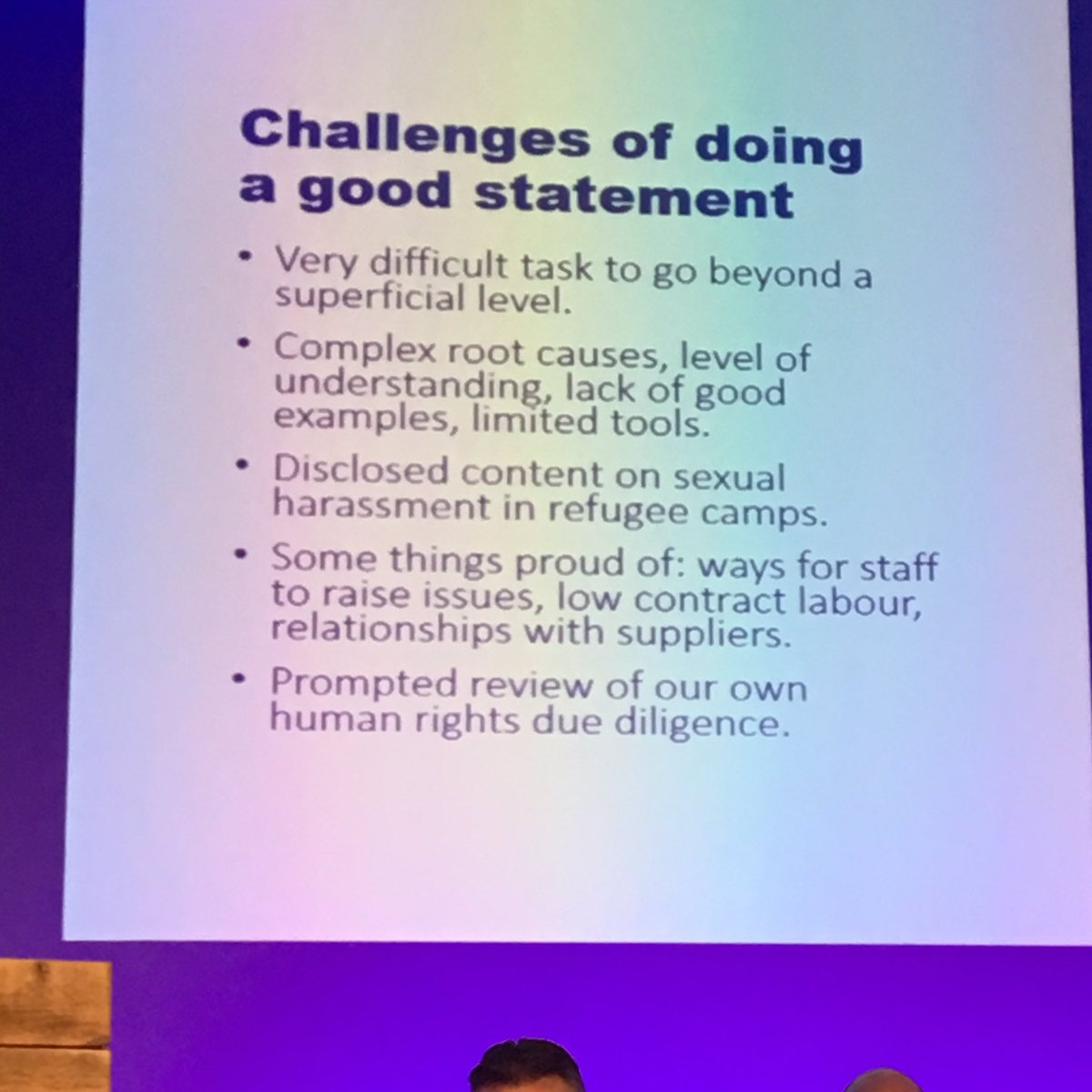 In 2016, a new storage technology was introduced in
Kithithina, Kenya, that can increase the shelf life of potatoes
from one to eight months. Known as the Ambient Ware
Potato Store, these facilities protect crops from light, heat,
humidity, pests, and rodents—enabling potatoes to stay
dormant until farmers are ready to sell them. The technology
helps farmers to wait for higher off-season market prices
while stabilizing market supply.
In 2016, a new storage technology was introduced in
Kithithina, Kenya, that can increase the shelf life of potatoes
from one to eight months. Known as the Ambient Ware
Potato Store, these facilities protect crops from light, heat,
humidity, pests, and rodents—enabling potatoes to stay
dormant until farmers are ready to sell them. The technology
helps farmers to wait for higher off-season market prices
while stabilizing market supply.
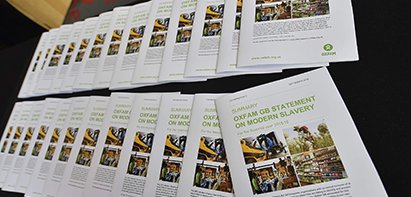 In 2016, the German Ministry of Agriculture launched a €10 million program to develop “smart packaging” that uses electronic chip sensors to determine how food has aged and communicate to consumers the food’s freshness and safety.
In 2016, the German Ministry of Agriculture launched a €10 million program to develop “smart packaging” that uses electronic chip sensors to determine how food has aged and communicate to consumers the food’s freshness and safety.
In February 2016, France adopted legislation that requires French supermarkets to donate unsold yet still edible food to charities.
 In 2016, Tesco rolled out “Community Food Connection,”
which utilizes an online app with FareShare Food Cloud
to link unsold yet still safe food with local food charities in
real time, reducing the amount of food that goes uneaten.
In 2016, Tesco rolled out “Community Food Connection,”
which utilizes an online app with FareShare Food Cloud
to link unsold yet still safe food with local food charities in
real time, reducing the amount of food that goes uneaten.
In August 2016, the European Commission established the
“EU Platform on Food Losses and Food Waste,” a collaboration
to identify food loss and waste prevention measures,
share best practice, and evaluate progress over time.
Designed to support the delivery of Target 12.3, the platform
includes national experts from Member States, intergovernmental
organizations, research institutions, and non-governmental
organizations.
In January 2016, The Rockefeller Foundation launched YieldWise, a $130 million investment to demonstrate practical approaches to halving food loss and waste by 2030. The initiative is tackling hotspots in food loss and waste generation, including fruits, vegetables, and staple crops in Kenya, Nigeria, and Tanzania, as well as food waste in North America and Europe. Its approach spans market development, loss prevention technologies, financing models, innovation, and business tools to measure and track food loss and waste across supply chains.
Related:
UNECE and FAO are organising a
Conference on Food Loss «no time to lose on food loss» 10 November 2016, from 10:00 to 18:00 in Room VIII, Palais des Nations, Geneva. To attend the Seventy-second session of the Working Party on Agricultural Quality Standards (WP.7) (
9 - 11 November 2016) registration is compulsory. Participants
can register online and create their UNECE profile.












